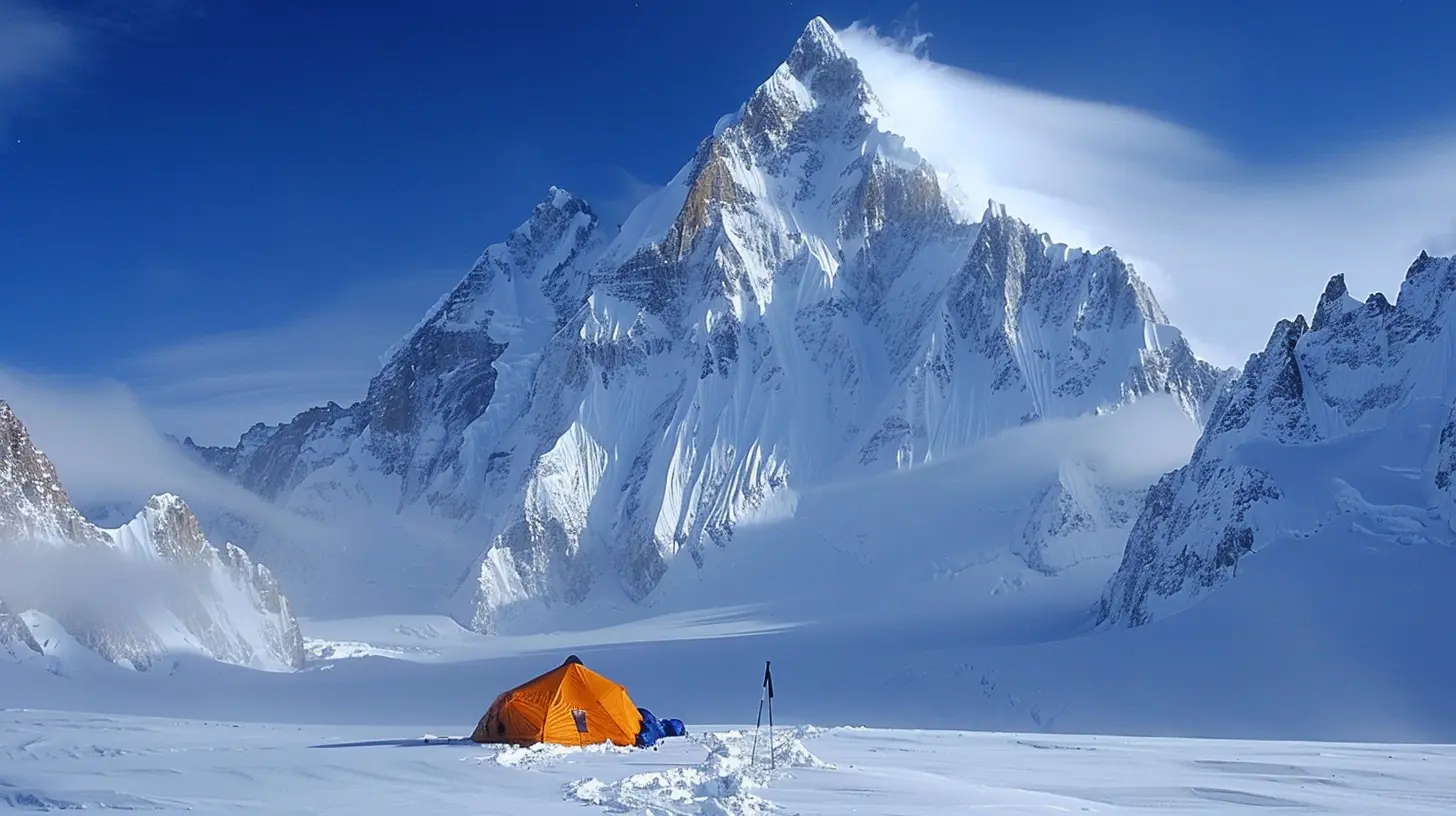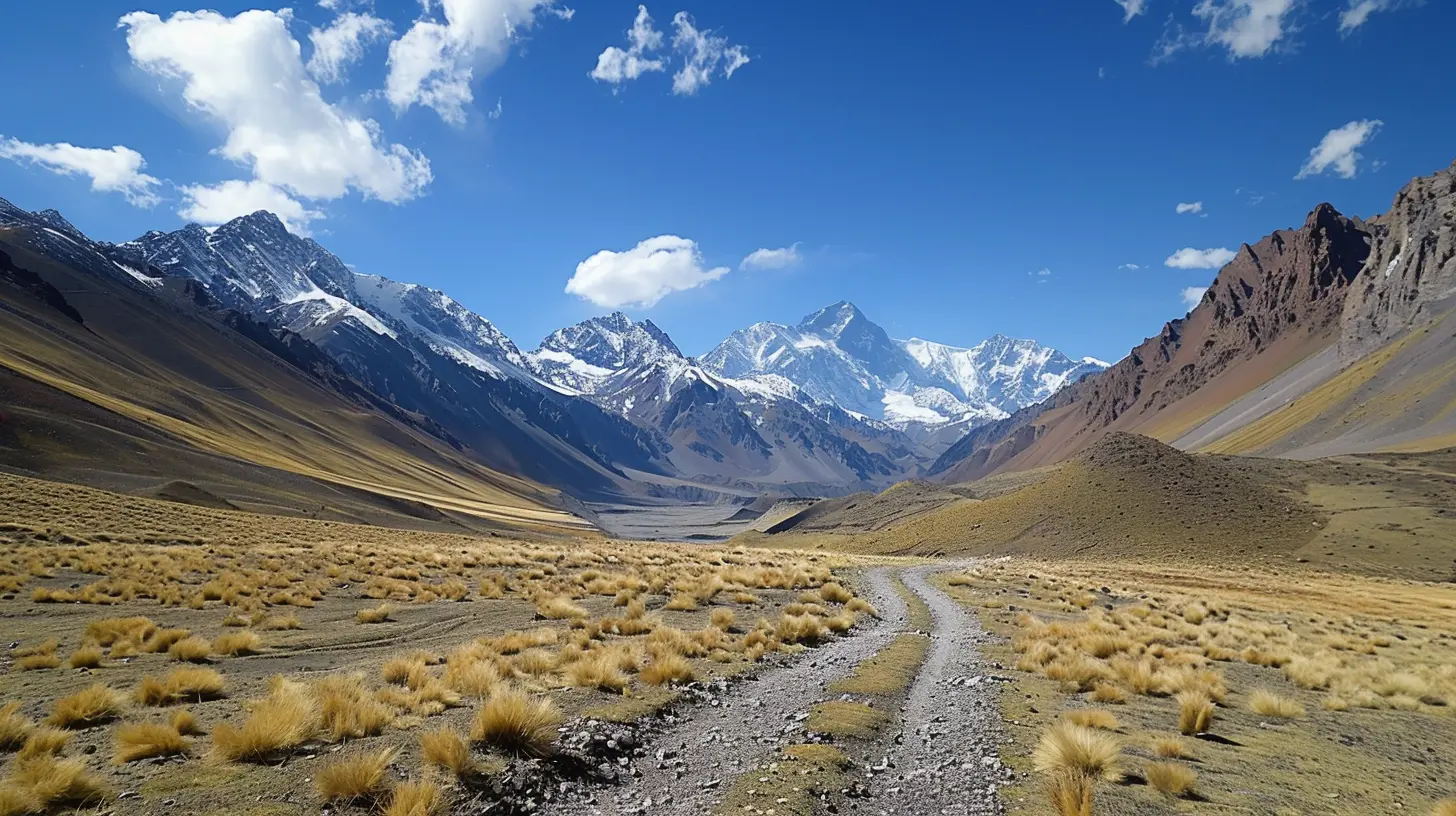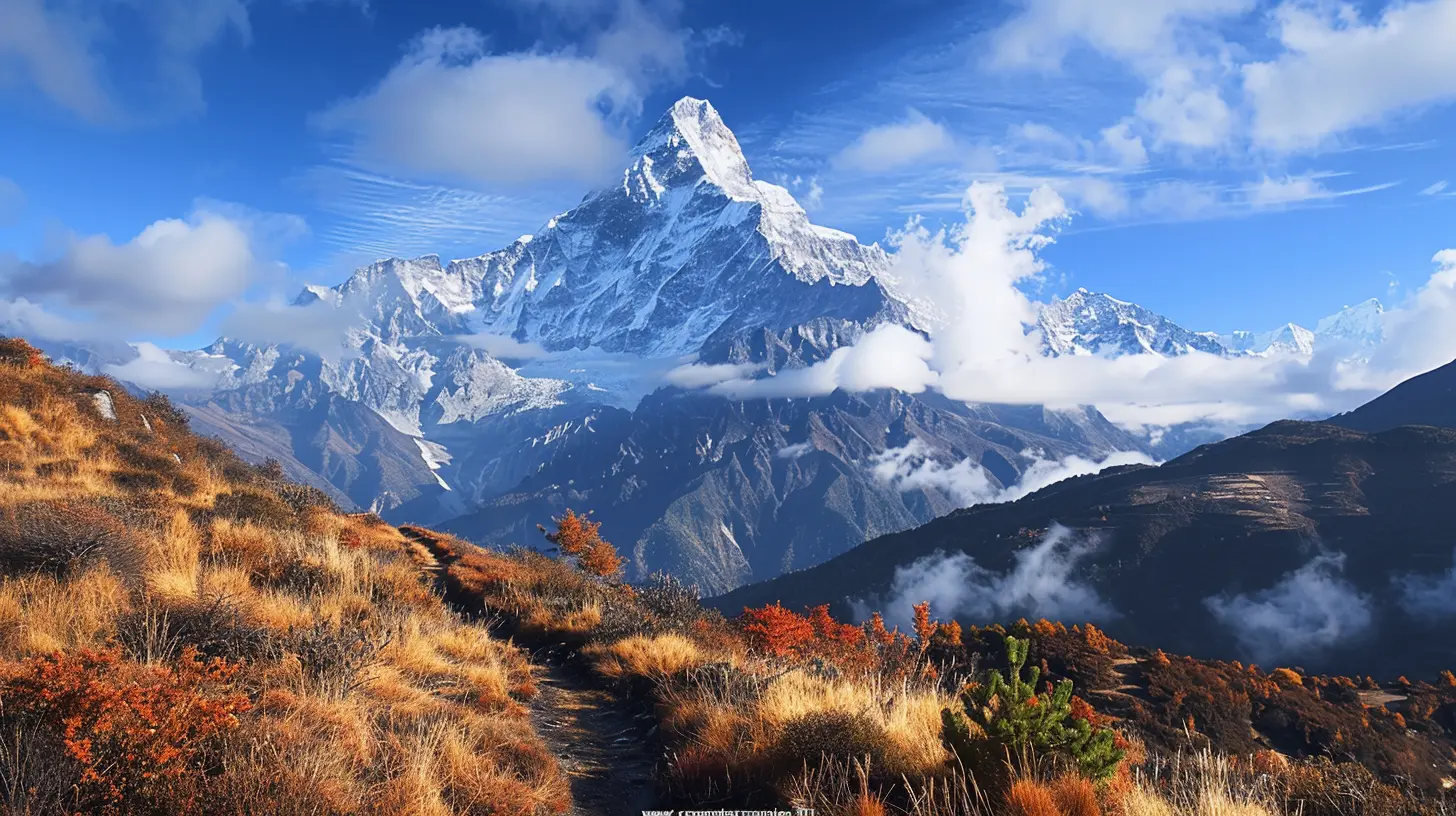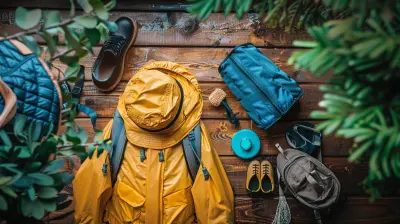Adventuring at Altitude: How to Deal With High Mountain Conditions
4 April 2025
If you've ever dreamt of standing atop a rugged peak, gazing out over the world from thousands of feet above sea level, you’re not alone. High-altitude adventures offer breathtaking views, a sense of accomplishment, and an escape from the ordinary. But the higher you climb, the more challenging things get.
At extreme elevations, your body faces unique stresses—less oxygen, colder temperatures, and unpredictable weather. If you're not prepared, these conditions can turn an unforgettable adventure into a dangerous ordeal. So, how do you deal with high mountain conditions? Let’s break it down. 
Understanding High-Altitude Challenges
Before you pack your gear and lace up your boots, it's crucial to understand what happens to your body at altitude.Lower Oxygen Levels
One of the biggest challenges at altitude is the thin air. As you go higher, the amount of oxygen decreases. At sea level, the air is about 21% oxygen, but at 12,000 feet, oxygen levels drop by roughly 40%. The result? Your body struggles to get enough oxygen, leading to fatigue, dizziness, and sometimes altitude sickness.Altitude Sickness
Altitude sickness, also known as Acute Mountain Sickness (AMS), affects many trekkers and climbers above 8,000 feet. Symptoms include:- Headaches
- Nausea
- Shortness of breath
- Dizziness
- Fatigue
Ignoring the signs can lead to severe complications like High Altitude Pulmonary Edema (HAPE) or High Altitude Cerebral Edema (HACE), both life-threatening if not treated immediately.
Unpredictable Weather
Weather in the mountains is notorious for its unpredictability. One minute, you're hiking under a clear blue sky, and the next, you're caught in a snowstorm. Temperatures can drop dramatically, and strong winds can make conditions unbearable.Dehydration and Energy Depletion
At altitude, you lose more water through respiration than at lower elevations, increasing your risk of dehydration. Additionally, your body burns more calories as it works harder to cope with the lack of oxygen. Without proper hydration and nutrition, you’ll run out of energy quickly.
How to Prepare for High-Altitude Adventures
Preparation is key when heading to high elevations. Here’s how to set yourself up for success.Train Before You Climb
You don’t have to be an elite athlete, but a high-altitude adventure requires solid physical conditioning. Start by:- Cardio Training: Running, cycling, swimming, or hiking at lower elevations will improve your lung capacity.
- Strength Training: Your legs and core need to be strong for the terrain.
- Hiking with a Pack: Train with the gear you'll carry to get used to the weight.
Acclimatization: Take It Slow
One of the biggest mistakes hikers make is ascending too fast. Your body needs time to adjust to the altitude. Follow these acclimatization strategies:- Take Rest Days: If you're trekking to a high-altitude location, schedule rest days to allow your body to adapt.
- Climb High, Sleep Low: If possible, ascend to a higher elevation during the day but return to a lower altitude to sleep.
- Listen to Your Body: If you start feeling symptoms of altitude sickness, don’t push on—descend if necessary.
Stay Hydrated and Eat Well
At high altitudes, you need to drink more water than usual—aim for 3-4 liters per day. Also, prioritize high-energy foods like:- Complex carbohydrates (oatmeal, whole grains)
- Lean proteins (nuts, beans, lean meats)
- Healthy fats (avocados, olive oil, nuts)
Avoid alcohol and excessive caffeine, as they can contribute to dehydration.
Pack the Right Gear
Mountain conditions can change in an instant, so having the right gear is essential. Make sure you bring:- Layered Clothing: A moisture-wicking base layer, an insulating mid-layer, and a waterproof outer layer.
- Sturdy Boots: Proper footwear with ankle support reduces injury risk.
- Sunglasses & Sunscreen: UV exposure is stronger at high altitudes.
- Gloves & Hat: Essential for keeping warm in cold conditions.
- Emergency Equipment: First aid kit, headlamp, extra food, and a map or GPS. 
How to Handle Challenges at Altitude
Even with preparation, things can still go wrong. Here’s how to deal with common high-altitude problems.What to Do If You Get Altitude Sickness
If you start feeling symptoms of altitude sickness:1. Stop Ascending: Give your body time to adjust.
2. Hydrate More: Drink plenty of water and avoid alcohol.
3. Rest & Monitor Symptoms: Mild cases often improve after a night's rest.
4. Descend if Necessary: If symptoms worsen, go to a lower altitude immediately.
Dealing With Cold and Hypothermia
Prolonged exposure to cold temperatures can lead to hypothermia, where your body loses heat faster than it can produce. Signs include:- Shivering
- Confusion
- Slurred speech
- Loss of coordination
To prevent hypothermia:
- Dress in layers and keep yourself dry.
- Keep moving to generate warmth.
- Eat high-calorie foods to maintain energy.
- Seek shelter if conditions become extreme.
Handling Weather Changes
If a sudden storm hits, here's what to do:- Find Shelter: If possible, get below tree line or find a rock overhang.
- Avoid Metal Objects: If there’s lightning, stay away from trekking poles and other metallic gear.
- Stay Dry: Cold rain or snow can quickly lead to hypothermia. 
Mental Strength: The Overlooked Factor
Physical training is important, but your mental resilience will often determine your success at altitude. The challenges can be overwhelming—fatigue, discomfort, and self-doubt creep in.Here’s how to stay mentally strong:
- Set Small Goals: Instead of focusing on the summit, set milestones along the way.
- Stay Positive: A good attitude keeps morale high, even in tough conditions.
- Stay Present: Don't overthink what’s ahead—take one step at a time.
When to Turn Back
No summit is worth your life. If you experience severe altitude sickness, extreme fatigue, or dangerous weather conditions, turning around is the smartest decision you can make. Many experienced mountaineers say, “Getting to the top is optional, getting down is mandatory.”Having the courage to retreat when necessary ensures you live to climb another day.
Final Thoughts
High-altitude adventures are thrilling, rewarding, and unforgettable. But they also demand respect. Whether you’re trekking in the Andes, scaling a Himalayan peak, or hiking a high alpine trail, the right preparation can mean the difference between success and danger.Listen to your body, plan wisely, and embrace the challenge. The mountains will always be there—make sure you are too.
all images in this post were generated using AI tools
Category:
Mountain AdventuresAuthor:

Winona Newman
Discussion
rate this article
6 comments
Verity Duke
Great insights! Your tips on high-altitude adventures are invaluable for any aspiring traveler.
April 20, 2025 at 3:56 AM

Winona Newman
Thank you! I'm glad you found the tips helpful for your adventures!
Jinx McLaughlin
Great article! Navigating high altitudes can be challenging, but your tips make it feel achievable. Excited to plan my next adventure with this advice in mind!
April 14, 2025 at 4:48 AM

Winona Newman
Thank you! I'm glad you found the tips helpful. Enjoy your next adventure!
Owyn McManus
Great tips for high-altitude adventures! Excited to explore more!
April 12, 2025 at 2:46 AM

Winona Newman
Thank you! I'm glad you found the tips helpful—enjoy your adventures at altitude!
Zephyros McKay
Great tips! Appreciating the mountains more with your insights. Thank you for sharing!
April 6, 2025 at 3:29 PM

Winona Newman
Thank you for your kind words! I'm glad you found the tips helpful. Happy adventuring!
Astra Cross
Altitude: where breathing becomes optional!
April 6, 2025 at 3:00 AM

Winona Newman
Great way to put it! Adapting to altitude is crucial for a safe and enjoyable adventure. Thanks for reading!
Arwen Clarke
Embrace the thrill of high-altitude adventures with confidence! Equip yourself with essential gear, stay hydrated, and acclimatize properly. Understand your limits and listen to your body. With the right preparation, you’ll conquer the peaks and create unforgettable memories. Adventure awaits—go seize it!
April 4, 2025 at 4:54 PM

Winona Newman
Thank you for the encouraging words! Preparation and self-awareness are indeed key to enjoying high-altitude adventures safely. Happy adventuring!
MORE POSTS

City Chic: Discover the World's Most Stylish Urban Luxury Hotels

Loft Living: Chic Urban Airbnb Apartments with a Modern Flair

Snowbound Adventures: Skiing and Snowboarding Off-Piste

Packing for Rain or Shine: Be Prepared for Any Weather

Where to Stay for the Ultimate Safari Experience: Luxury Safari Lodges